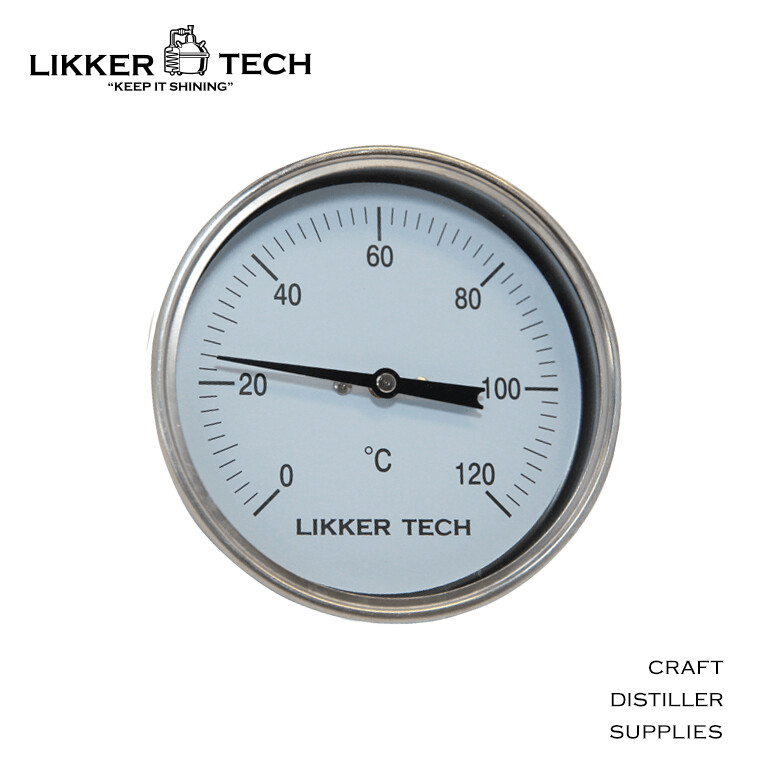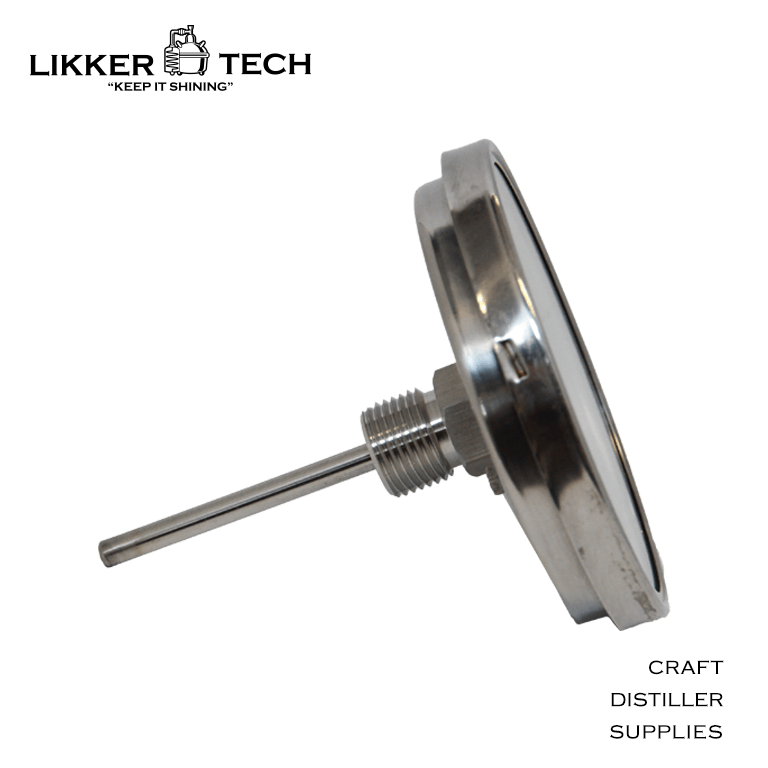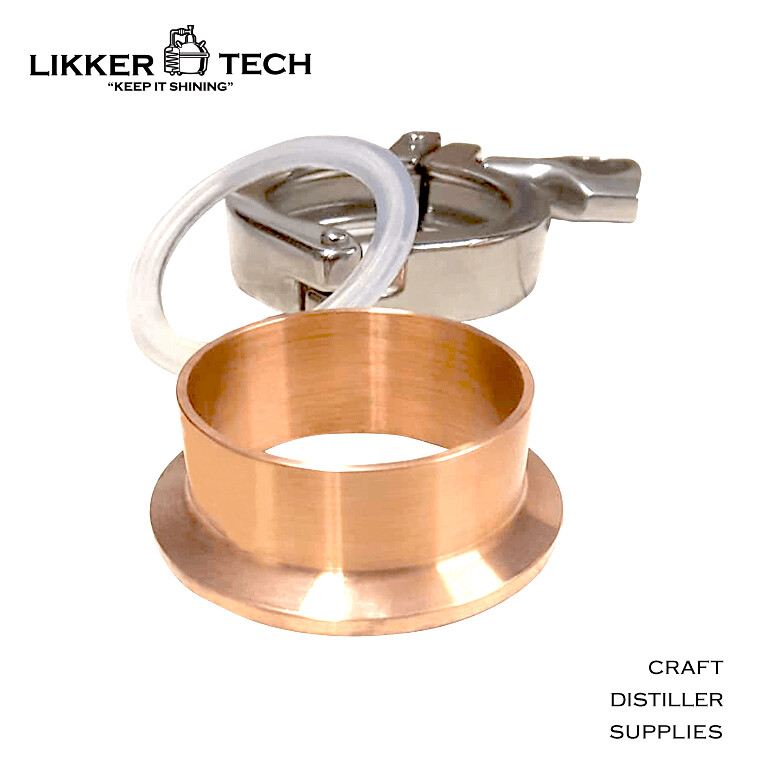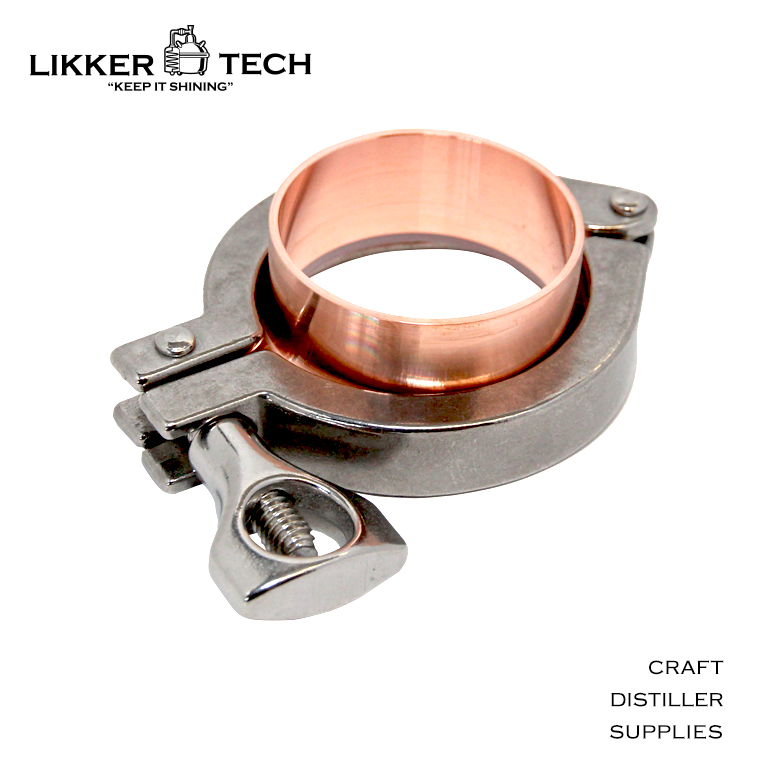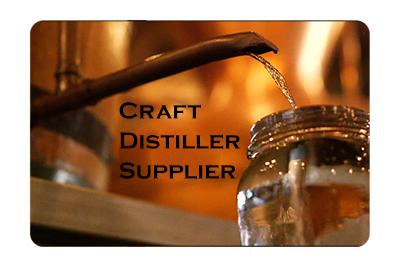FAQs
Here are answers to some common questions.
-
Are your stills made of 100% Copper?
Yes, at LIKKER TECH we use 100% Copper, apart from our joints which may be made of copper, brass, tin, or silver. Some parts may have glass and or stainless steel, but the main part of our stills is 100% copper.
We keep to the tradition of making all our stills out of copper as we believe copper to be the preferred material by most moonshiners, whisky (whiskey), and brandy makers and truly double as works of art. Besides being more efficient they just look cool.
-
Are all sales private? Can a government agency trace my purchase?
Yes, your privacy is important to us and all sales are private and untraceable. The only way a government agency can trace purchases is if they specifically request customer information from us. They have never requested any information from us. We think it unlikely they will do so in the future. If they do request customer information, we must comply, but we would also immediately contact all our customers and inform them of this.
Please read our terms and conditions / privacy policy
-
Is owning a still legal? Is distilling legal?
Short answer: It is legal to own a still but illegal to distill alcohol. The law (which you are subjected to) requires you to register your still. If a police officer or government official asks you what your still is, you can safely tell them it is a copper garden ornament or water distiller.
Long answer: Under the Law it is legal to own a still of any size, but it is illegal to distill alcohol without a registered still and distilled spirits permit. You can thus legally distill at home, but you may not sell the goods produced. In order to do legally distill at home, you first need to register both your still and yourself. Regulations require our company to keep appropriate records regarding sales to customers. The government can compel us to present these records if requested. We have never been issued such a request and if a request were ever made, we would notify all our customers immediately. We do not sell alcohol or promote illegal activity and is solely the responsibility of the user to abide by the laws of their country. Our company discourages any unlawful use of the products we sell and is not responsible for any damage or injury caused by misuse or unlawful use. Registration falls under Article 116 of the law, Manufacture of Excisable Goods.
We encourage you to obtain the necessary permits before distilling alcohol. Please know that it is your responsibility to use your still legally, not ours. Refer to Blog article on registering your still.
-
Do you sell thump kegs?
Yes, we do sell thumpers, however, we feel that adding a thump keg is unnecessary. Thumpers are mainly used in the large-scale production of alcohol to increase proof and remove sediments, which strips the flavor from the process. If you need a thumper for your still, we recommend you contact us, and we will discuss the operation and safety in the use of it.
-
What heat source should I use?
Our stills do not include a heat source; you will need to purchase one separately. Propane (LPG) burners are very effective, but they should be used outside to minimize the risk.
-
How do I measure the proof of my alcohol?
Measuring is done with a tool called a hydrometer. We sell a hydrometer bundled with a proofing parrot on our website. We also sell individual hydrometers, SG, and pH meters separately.
-
Is distilling dangerous?
All our stills are manufactured in accordance with safety and security measures. However, distillation can at times involve some risk. These risks can be minimized by not smoking or drinking while distilling, always distilling outdoors, and by making sure there are no obstructions in the tubing of the still so pressure doesn’t build up. Keep your final product away from open flames, thus if you use gas as a heat source make sure that you do so safely and in a well-ventilated area. It's good practice to keep a fire extinguisher close by.
-
What type / amounts of results will I achieve from a distillation?
The amount of shine that you'll get depends on the alcohol content of your wash or mash. The results will vary depending on what you are distilling and what methods you are using but generally, you can expect our stills to yield the maximum of their capacity. The proof 9ABV) depends on how fast or slow you choose to distill. “Slower is better”…..Popcorn Sutton
-
What are the differences between copper stills and stainless-steel stills?
Copper has better heat conductivity. Alcohol you make with copper stills tastes and smells better. Copper stills are more expensive. Stainless steel stills can't compete on appearance; our copper stills feature amazing craftsmanship and truly double as works of art.
There are 4 main reasons we use copper:
Heat: Heat is arguably the single most important element when creating distilling. If there’s not enough heat, alcohol vapor won’t be released from the mash or ingredients; thus, making it difficult, if not impossible, to create a batch of shine. Thankfully, copper possesses exceptional heat-transfer properties. In fact, it has nearly four times the thermal conductivity of stainless steel, allowing for a faster and more efficient distilling process.
Antimicrobial: Copper is also considered an “antimicrobial” metal, meaning it repels common forms of bacteria, fungi, and mould. Opting for an aluminum or stainless-steel alcohol still will likely result in microbial growth. Small amounts of bacteria and fungi won’t cause any serious harm to your alcohol, but over time they will build-up to the point where it affects both the flavour and consistency of your beverage. Thankfully, you can prevent this from happening by using a copper still.
Prevents Methylcarbamate: A lesser-known benefit of copper for distillation stills is that it protects against the potentially harmful chemical known as methylcarbamate. Without going into too much detail, this chemical is formed when ammonia is exposed to either methyl chloroformate or methyl carbonate. Methylcarbamate can cause serious illness when consumed in large quantities, so it’s best to avoid this risk by using a Copper still for your distillation.
Unique flavor and aroma: A fourth and final reason why you should use a Copper still is because of the unique flavor and aroma it adds. If you’ve ever got the chance, try comparing a batch of alcohol made from a copper still to a batch made from a Stainless Steel still. There’s an undeniably unique flavor with copper stills that most people enjoy. While stainless steel stills can produce alcohol, they don’t offer this same flavor and aroma.
These are just a few of the many reasons why copper is the material of choice for stills.
-
Do your stills contain lead?
Our stills do not contain lead. Our stills are 100% copper. Any welding is made with copper thus obtaining a non-lead construction. All soldering/welding is lead-free.
-
What is difference between a pot still and a column still?
A pot still simply collects and condenses the alcohol vapours that come off the boiling mash. This will result in alcohol at about 40-60% purity, with plenty of flavour in it. If this distillate were put through the pot still again, it would increase in purity to around 70-85% purity and lose a bit of its flavour. Pot stills only have one cooling condenser, and are ideal for making spirits like whiskey, brandy, and rum.
A reflux still does these multiple distillations in one single go, by having some packing like copper mesh or Raschig rings in a column and allowing the vapour to condense and trickle back down through the packing with the help of an extra condenser at the top of the column called a reflux condenser. This “reflux” of liquid helps clean the rising vapor and increase the ABV% purity. The taller the packed column, and the higher the reflux ratio, the purer the product will be. Reflux ratio is controlled by the amount of water passing through the reflux condenser relative to the temperature heating the boiler. When operated correctly a reflux still can distill ethanol up to 95% purity. The advantage of refluxing is that it can result in a clean vodka, with little flavour to it. Reflux columns can also be fitted with a gin basket for making gin. Copper packing for our reflux columns is purchased separately and does not come with the purchase of the column itself. Our reflux stills can be run just like a pot still, simply by removing some or all of the packing from the column and turning off water flow to the reflux condenser.
A plated flute column works similarly to a reflux still in that it has a reflux condenser (or “dephlegmator”) at the top of the column, however instead of using packing, flutes use a series of copper bubble plates inside of the column to increase purity. The vapour in the column re-condenses and percolates each time it passes through one of these plates, resulting in the loss of some water and increasing of the purity of the spirit. The more plates in the column, the higher the ABV% and the more flavour removed. Flute columns are very common in the craft distilling industry and are commonly used commercially to make all kinds of spirits such as vodka, whiskey, gin, rum, and brandy. Our flutes can be easily fitted with a gin basket to produce gin.
-
What can I make with my still?
Short answer: Basically, distilled water and essential oils…
Long answer: Any high proof alcohol, Natural Spirit, Vodka, Gin, Whisky, Brandy, Rum, Mampoer, Limoncello, Shooters, Tequila, and many more. It can’t make beer or wine as they are made to distill high %ABV alcohol.
-
Can I use the same still for making alcohol and essential oils?
No, we do not recommend it. If you use a still for essential oils, the oils always leave behind residue in the copper, no matter how well the still is cleaned afterward. This residue can make future alcoholic distillate harmful for human consumption. We recommend the use of two different stills, one for alcohol, and one for essential oils. However, if you insist on using your still to make essential oils, be sure to clean the line arm and condensing coils thoroughly so the oil residue doesn't clog up those tight areas of the still.
-
My still is leaking, what should I do?
Mix a small batch of linseed oil and flour to a doughy consistency and plug the leaky area on the inner side of the still. This is very simple to do and will waterproof the leak.
This linseed oil solution should never be scraped off or the leak may reappear. Any excess solution will disappear with continuous distillation and what is left over will not affect or influence whatever you want to distill.
Alternatively, bring it in and we will solder the leak for you.
-
How much does shipping cost?
We use The Courier Guy for all our shipping in South Africa and the cost of shipping depends on where you want the still shipped to. We will get a shipping quote from the courier guy and inform you of the costs. Alternatively, you are welcome to pop in and pick up your order.
Talk to us today!
We will get back to you as soon as possible
Please try again later

